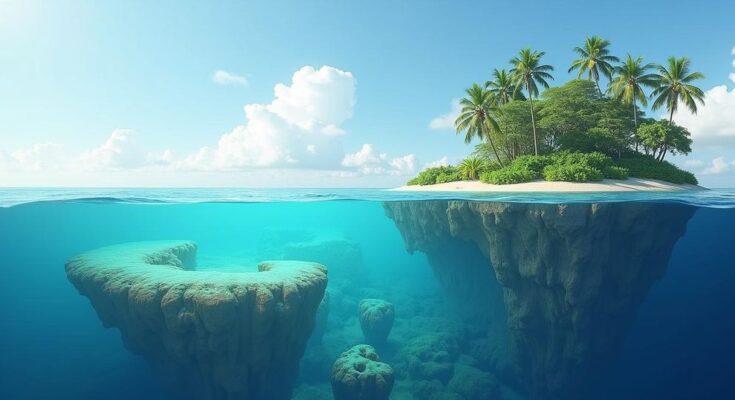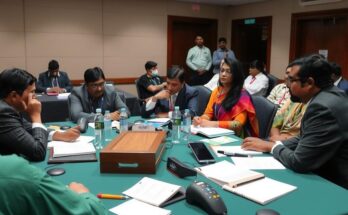U.N. Secretary-General Antonio Guterres has issued a stark warning regarding accelerating sea-level rise, particularly endangering Pacific island nations. Reports indicate that local seas are rising at double the global average, exacerbating coastal flooding and creating significant risks for the populations residing near these waters. In light of these developments, Guterres has called for immediate global action to combat climate change and address the moral responsibility of larger carbon emitters.
The escalating phenomenon of rising sea levels poses a severe threat to vulnerable Pacific island nations, as emphasized by United Nations Secretary-General Antonio Guterres. During his remarks at the Pacific Islands Forum from the capital of Tonga, Guterres urged the international community to treat the plight of rising seas as a pressing climate emergency. The United Nations, alongside the World Meteorological Organization, released reports indicating that sea levels are not only rising sharply but are exacerbated by climate change-related issues such as ocean acidification and marine heat waves. Guterres observed alarming statistics; for instance, the sea level near Nuku’alofa in Tonga has increased by 21 centimeters (approximately 8.3 inches) from 1990 to 2020—twice the global average of 10 centimeters (3.9 inches). Similarly, Apia, Samoa, recorded a rise of 31 centimeters (1 foot) while Suva, Fiji, witnessed a 29-centimeter (11.4 inches) rise. These figures highlight that roughly 90% of the population in the Pacific Islands resides within close proximity to the encroaching seas, compounding their vulnerability. Since 1980, the incidence of coastal flooding has escalated dramatically in various Pacific locations, with Guam recording an increase from two to 22 occurrences annually and American Samoa experiencing floods increasing from zero to an astonishing 102 times per year. Celeste Saulo, Secretary-General of the World Meteorological Organization, remarked, “Because of sea level rise, the ocean is transforming from being a lifelong friend into a growing threat.” Guterres articulated the severe implications of this crisis, declaring that it represents a situation created entirely by human actions—one that stands to grow exponentially in scale without solution. He called for urgent action to combat climate change, particularly from wealthier nations that have a larger carbon footprint, stressing the moral authority of Pacific nations to demand accountability from those responsible for exacerbating climate fluctuations. Furthermore, the rising waters correlate with the melting of the Greenland and Antarctic ice sheets, with the rate of sea-level rise currently being the most rapid in three millennia. Guterres disclosed that while the western Pacific experiences some of the highest rates of sea-level rise, the global community cannot overlook the dire implications and the moral responsibility that comes with addressing this ongoing crisis.
The issue of rising sea levels is central to climate change discussions, particularly impacting low-lying island nations in the Pacific. The warming of the Earth and the subsequent melting of ice sheets are primary contributors to this phenomenon. Increasing sea levels have heightened the frequency and intensity of coastal flooding, especially in regions that are already vulnerable. The Pacific Islands Forum serves as a platform for those nations disproportionately affected by climate change to advocate for global action and resource allocation from wealthier countries, which contribute significantly to carbon emissions. The growing urgency for climate action has led nations such as Tonga and Samoa to seek international support and recognition as they face existential threats from rising seas.
In summary, Secretary-General Antonio Guterres has brought critical attention to the accelerating crisis of sea-level rise affecting Pacific island nations. The evidence presented in the U.N. reports indicates that these regions are suffering disproportionately due to climatic changes largely driven by human activities. Guterres’s call for urgent action and accountability from major fossil fuel contributors reinforces the importance of collaborative efforts to mitigate these adverse effects and assist those most affected. As global leaders convene, it remains imperative that meaningful strategies are implemented to safeguard vulnerable populations and ecosystems from further degradation.
Original Source: www.voanews.com




